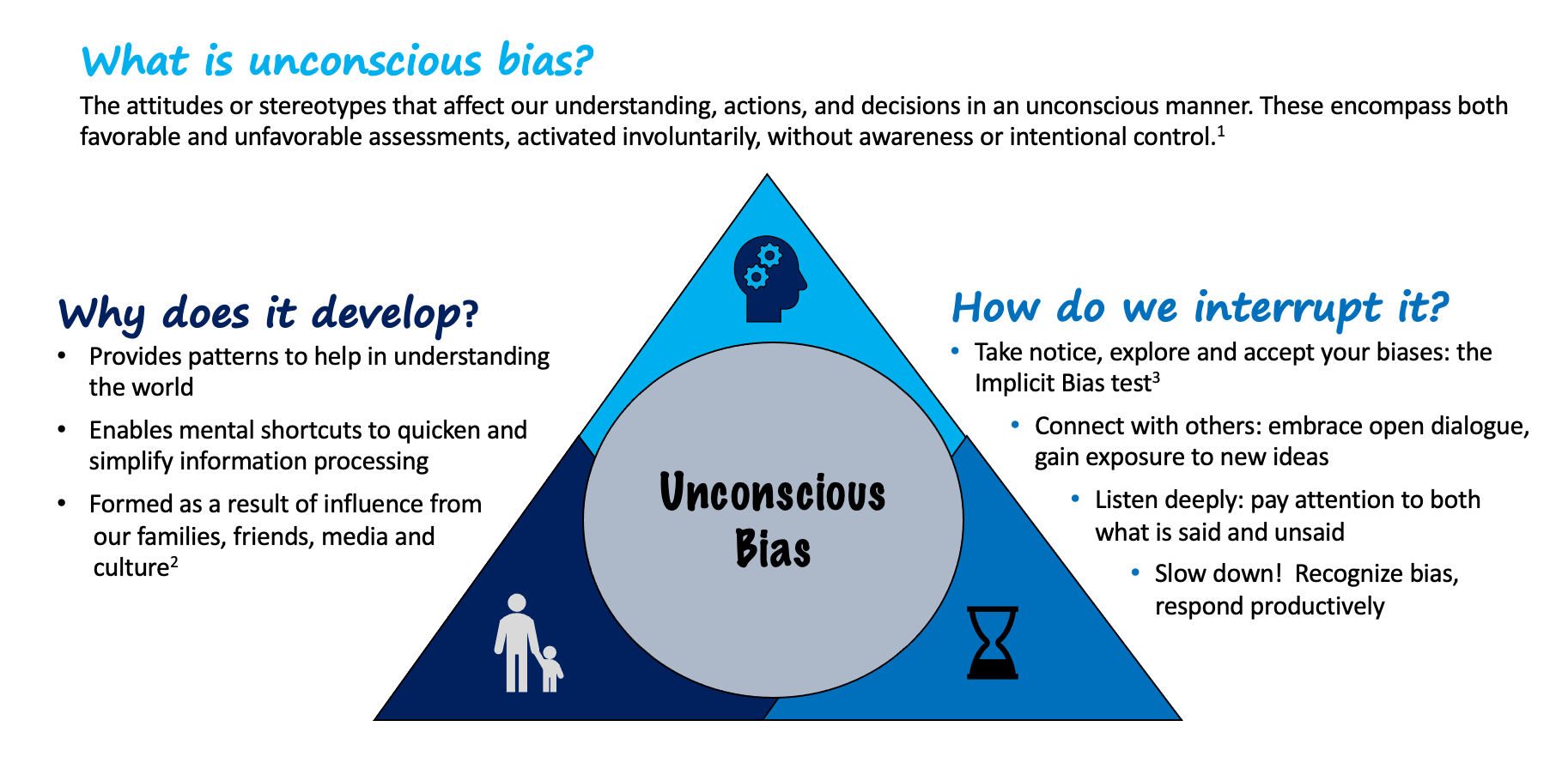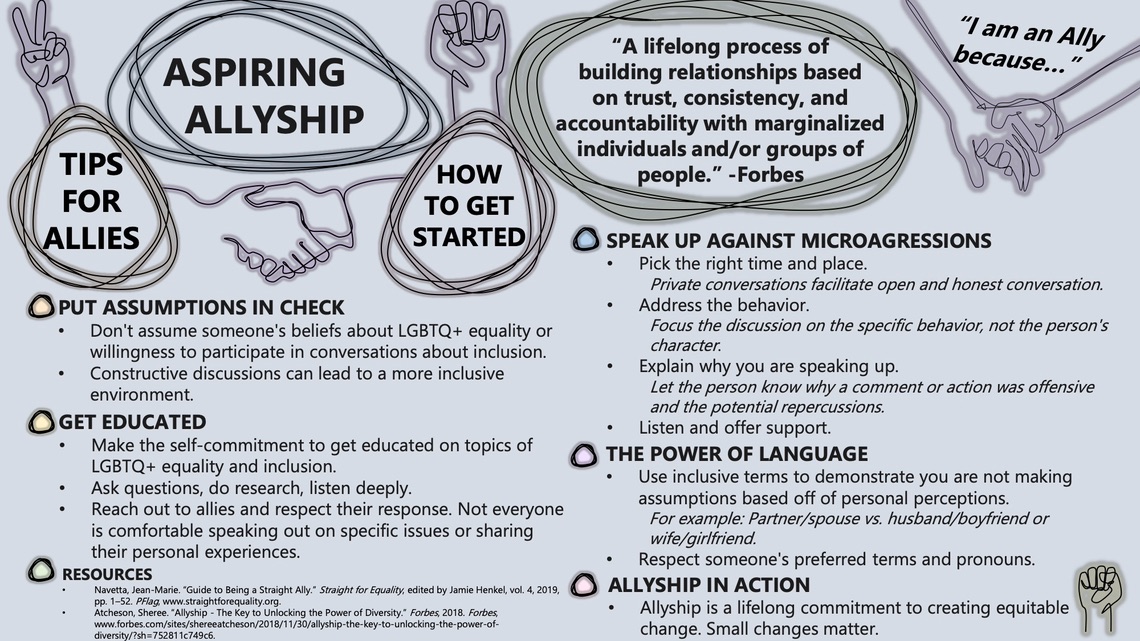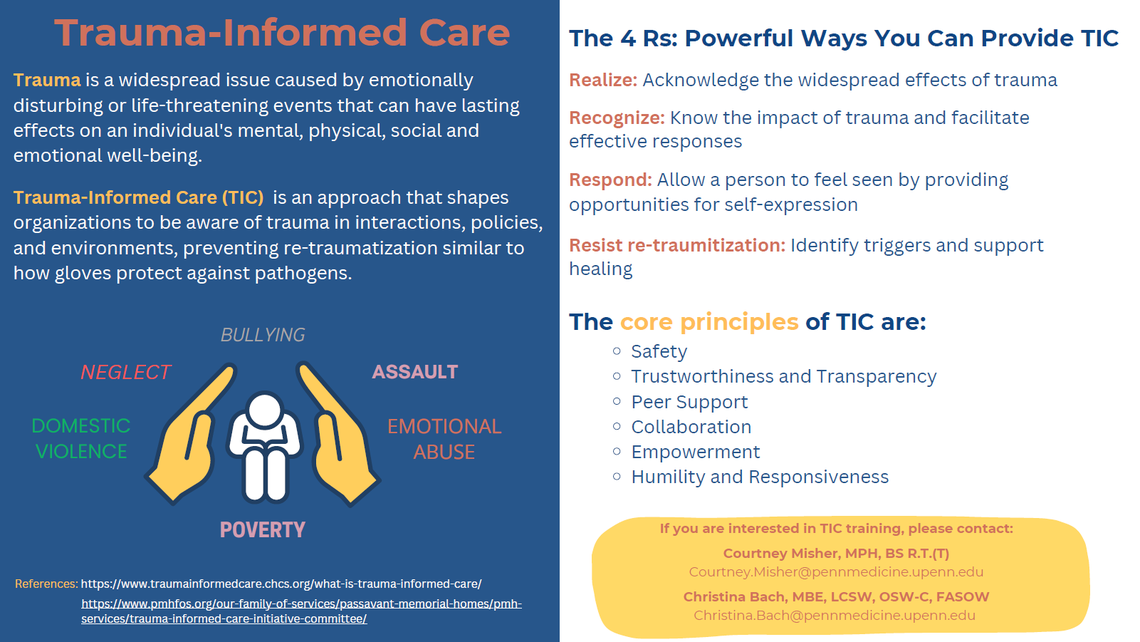Listen Deeply: An Educational Resource
"An investment in knowledge pays the best interest"
-Benjamin Franklin, 1758
We encourage continuing education, self-reflection, and wellness to build cultural sensitivity in our community. Towards this purpose, Listen Deeply is designed as a self-guided tool. It contains resources to guide our training and growth in cultural awareness as members of the Penn Community. These resources utilize literature, video, and podcasts, as well as provide information on additional trainings and workshops.
Unconscious Bias

- 1Understanding Implicit Bias, Kirwan Institute for the Study of Race and Ethnicity
- 2Implicit or unconscious bias by Charlotte Ruhl: Simply Psychology, July 01, 2020
- 3Project Implicit. Test Yourself for Hidden Biases, Teaching Tolerance. Cognitive bias Recognizing and managing our unconscious biases by Richard L. Byyny, MD, FACP: The Pharos, Winter 2017.
- All online resources accessed on October 10, 2020.
In this TED talk, Verna Myers challenges us to look within ourselves at our own attitudes and biases in order to reform our images of young Black men. She asks us to reset negative, unconscious associations with Black men and offers three actions to build positive associations. First, we can intentionally familiarize
ourselves with images of accomplished Black men throughout history, building within our subconscious an implicit positive association with Black men. Second, we can take inventory of our own community of friends and associates, considering opportunities to develop or build genuine relationships with Blacks. Lastly, we can face the discomfort and bravely accept the challenge of speaking up to encourage others to take the above actions as well.
In this article, Richard Byyny describes behaviors that have allowed us to create shortcuts for day-to-day neuronal processing, yet come at the cost of developing bias, be it conscious or many times unconscious bias. He connects these biases to other well-known terms like stereotyping, explaining how they underline our actions and thoughts. Notably, he highlights ways to become aware and self-reflect to correct the biases underlying our neuronal networks. The strongest action that we can take is to educate and test ourselves on these ideas, developing a conscious awareness of our failures to recognize our biases. “We can all work to educate others—colleagues, students, leaders, —that unconscious bias exists, and that it has detrimental unintended consequences.... (Yet it is) malleable and can be changed by devoting intention, attention, and time to develop and learn new associations.”
Project Implicit provides opportunity for you to assess your own unconscious bias, also known as implicit bias, across a broad range of areas that may be of interest to you. There are over 90 different topics to choose from. Register for Project Implicit and learn more about your own unconscious biases through an Implicit Association Test (IAT).
Allyship

Cultural Awareness
Check out this article
Trauma Informed Care


